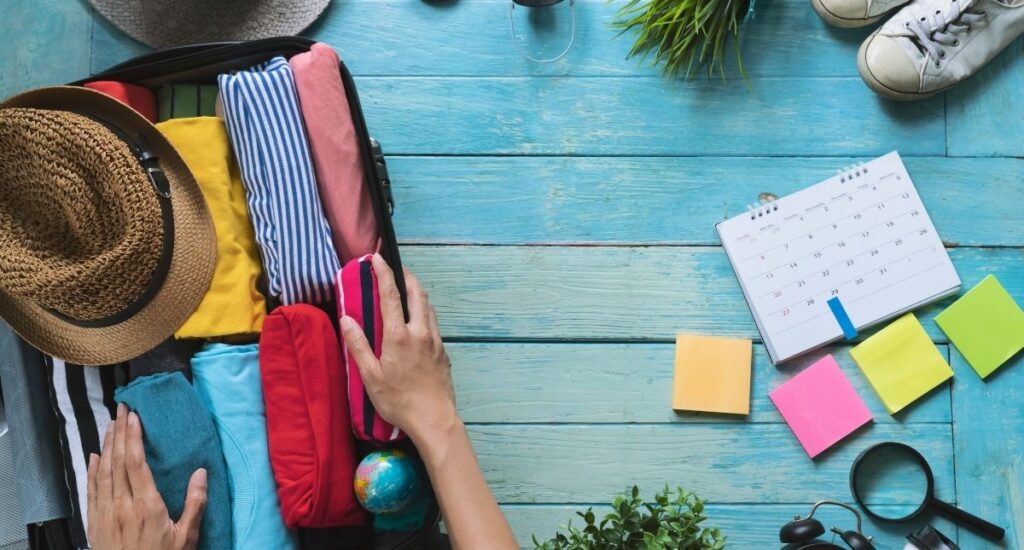While packing is never fun, even under the best of circumstances, it becomes much more of a hassle when you need to bring a lot of medical equipment with you when you USA to India Flight Deals travel for medical treatment. You want to make sure you don’t add to your stress by forgetting anything crucial, what with the increased security for passengers and the fact that you may not be at your best.
Your vacation will get off to a good start if you list everything you could need and double-check it before leaving home. They have compiled a list of necessities for your medical tourism journey. One must learn to pack efficiently. If you give it some thought, you’ll realize that the following travel packing ideas are all you need for a trip to a hill station.
Woollens:
Woollens are always at the top of their list when packing for a hill, but they always bring more than they need. The emphasis should be on keeping warm, but comfort is also essential. If you don’t want to suffocate in your woollen clothing or perish from carrying too much weight, find the perfect amount for a hill station.
Sweaters and pullovers may be as flashy as you choose. Invest in high-quality body warmers since they are instrumental all year round. Don’t skimp on the socks, but two pairs of gloves, hats, and a muffler should get you through the cold season. When visiting a hill station in the summer, a down jacket and a fleece are all required.
Wearing what’s most comfortable:
Pack appropriate attire for both the trip and the hospital. Since the weather might change at any moment, it’s best to be ready for everything. You won’t feel like doing much of anything following your medical treatment, and indeed not shopping. Wearing loose, comfortable attire appropriate for a medical atmosphere is a must. You may choose between a robe or pyjamas with buttons along the front.
Food:
While abroad, your diet will undoubtedly change. You should carry prescription anti-nausea medication at all times. In other nations, where the cuisine and spices are different, even those who seldom worry about this illness may experience it.
When travelling to a foreign country where you do not speak the language, it is best to overpack rather than run short of what you need. Taking pills instead of liquids or gels is a good idea while travelling, particularly aboard aeroplanes.
DEET, the active ingredient in insect repellent:
Apply some bug spray, just in case. Insects are a problem in several high-traffic medical tourism hotspots. Travelling to a foreign nation to treat a medical condition and returning home with a whole new situation would be a sad tragedy. Insect-borne illnesses range from somewhat inconvenient to potentially fatal.
Homey Accoutrements:
It would help if you packed travel essentials like pillows, slippers, and sheets for medical tourism visits. You won’t have to rely on the services of the hotel or the other nation if you bring along some familiar conveniences. You might be in for a rude awakening if you don’t take additional precautions to safeguard yourself, what with the disparity between local norms and what passes for sufficient in your host nation.
How to Get in Touch in an Emergency:
Make sure you have the names and contact information of any needed medical professionals and the location of your hotel, clinic, or another essential stop along the way. Even if you don’t know the language, if you have the address written down, you can always ask for directions if you need them. Keeping track of your daily activities in a notepad, you can quickly grab might be helpful.
Medicines:
Though they all enjoy the beauty of snow and rain, their immune systems are continually at odds with it. It’s prudent to have some common medications on hand. Your only “just in case” item should be there. Keeping an antiemetic on hand can prevent nausea and vomiting during uphill travel. It’s a must-have item for every trip, no matter where you go. Those prone to illness should bring cold and altitude sickness treatments to hill stations.
Medicines and pain relievers:
It is impossible to predict what resources a foreign healthcare centre will have available. Even though pain relievers like aspirin may be easily accessible where you now reside, this may not be the case in your destination country. Making false assumptions about other cultures and medical facilities might leave you without a vital resource.
Products for Use After an Event:
Planning is essential if you want to save money and make sure you’re comfortable. Wound bandages, gauze, scissors, band-aids, and over-the-counter drugs are some examples of goods you may wish to bring for medical treatment, but these may vary depending on the nation you’re visiting.
Documentation Required for Travel: Passports & Visas:
Always have local cash available for small purchases, and keep your passport close by. When planning a trip, examine each country’s passport requirements first.
For entry into some countries, a visa and a passport are also necessary. Whether you want to go abroad, you should always double-check with the local embassy to determine if this is necessary.
Currency:
It’s advisable to perform your currency exchange in advance at a reliable institution in your home town. You may not obtain a reasonable price if you wait to convert money in a foreign nation. Having money in lower denominations makes it easy to make purchases and get change for inexpensive things.
Statistics on medical and emergencies:
The names and contact information for your primary care physician, your pharmacist, and an emergency contact person should all be in your travel safety pack. Provide an up-to-date list of drugs, complete with brand names, dosages, and directions, as well as details about any preexisting diseases or allergies the patient may have.
It’s best not to update your social media accounts:
The worst thing you can do is announce your trip online while you’re still on vacation. Never share photos of your passport, boarding pass, or other Direct Flights to Delhi From USA travel documents online. In other words, they give up information that may utilize to steal your identity. Avoid broadcasting specifics of your trip on social media and tell only those closest to you about your plans. Thieves may use your vacation posts as a window of opportunity.
Don’t Risk Losing Your Treasured Possessions:
Take just what you will use. Keep your belongings to a minimum and secure in your room, taking out just what you’ll need for the day. Your room safe, lockers or lockable storage space are all excellent places to keep valuables, and you should always have a tiny combination lock with you on trips. Be aware of your whereabouts, and don’t advertise your expensive possessions.

